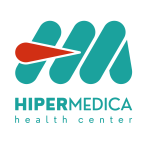- 22 11 53 600
- Mon-Fri: 900 - 2000 • Sat: 900-1300
- kontakt@hipermedica.com.pl
Home page - FAQ
Frequently asked questions and answers
Take a look at the most frequently asked questions and get answers right away. If you do not find the answer to your question here - please contact us and we will be happy to answer.
It doesn't. The clinic only provides commercial services.
Yes, the clinic is adapted for people with disabilities.
The clinic is located in Warsaw, Ursynów district, about 300 m. from the metro station "Ursynów". The entrance is from al. Komisji Edukacji Narodowej building number 94, premises U5.
The clinic can be reached by public transport (bus - stop Wiolinowa 02 - ZTM buses 136, 401, 503, 715, 737, subway - line M1 station "Ursynów") and by personal means of transport. There is free parking in front of the clinic.
Laboratory tests of blood and urine can be performed at the clinic. In addition, specialized hematooncology tests are provided. In addition, ECG, ECHO of the heart, ultrasound and Doppler ultrasound can be performed at the clinic. In addition, bone marrow tests (bone marrow aspiration biopsy, bone marrow trephine biopsy) and specialized genetic and molecular tests can be performed at HiperMedica.
The outpatient clinic provides inpatient medical consultations and telemedicine.
It is not possible to perform the above examinations at the clinic. If there are medical indications for it, the above examinations will be ordered by a doctor.
In order to obtain medical records, a request for medical records must be completed, which includes detailed rules of procedure. The records are issued no later than 7 days from the date of the request.
For abdominal ultrasound, adequate preparation is advisable due to the need to evaluate the gastrointestinal and urinary tract. Therefore, it is advisable to abstain from meals for 6-8 hours before the examination. It is advisable to abstain from smoking and chewing gum at least 24 hours before the scheduled examination. Two days before the examination, it is recommended not to eat bloating foods, i.e. cabbage, peas, beans or carbonated beverages. On the other hand, it is advisable to drink water and, about an hour before the examination, drink more water and refrain from urinating.
Before the procedure, you should:
- report about 15-20 minutes in advance to read the consent for the test and fill out the necessary documents;
- it is a good idea to reserve about 1-1.5 hours for the procedure;
- have the results of peripheral blood count and coagulation system (APTT, PT, fibrinogen) - valid for 1-3 days;
- eat a light meal about 2 hours before the procedure - fasting is not recommended;
- prepare a list of medications you are taking - some medications, including antiplatelet drugs (Acard, Aclotin, Plavix, Briloque, among others) or anticoagulants (Acenocoumarol, Warfin, Xarelto, Pradaxa, Eliquis, low molecular weight heparins) may lead to prolonged bleeding after the procedure hence it may be necessary to modify their intake after consultation with your doctor;
- if you are allergic to the drug or have a history of allergic or anaphylactic reactions, it is necessary to inform the staff in advance.
Before the test, to get objective and reliable results, you should:
- stop smoking for 24 hours (at least 2 hours before the test);
- do not consume alcohol 4 hours before the test;
- do not drink coffee and tea 4 hours before the test;
- do not eat too much food 2 hours before the examination;
- wear loose, non-restrictive clothing that allows free movement of the chest and diaphragm (avoid ties, corsets loosen the belt of your pants);
- notify staff of medications taken;
- do not take (if possible) inhaled drugs, including:
- short-acting beta-mimetics 8 hours before the test (e.g. Ventolin, Salbutamol);
- long-acting beta-mimetics 12 hours before the test (e.g., Formoterol, Salmeterol);
- short-acting anticholinergics (e.g., Atrovent) 6 hours before the examination
- long-acting anticholinergics (Spiriva) 7 days before the test
Subscribe to our Newsletter
-
Aleja Komisji Edukacji Narodowej 94 / U5
02-777 Warsaw, Poland -
22 11 53 600
725 620 777 - kontakt@hipermedica.com.pl
Important links
Opening hours
Mon - Fri:
09.00 - 20.00
Saturday:
09.00 - 13.00
Sunday:
Close
© 2023 HiperMedica. All rights reserved.
